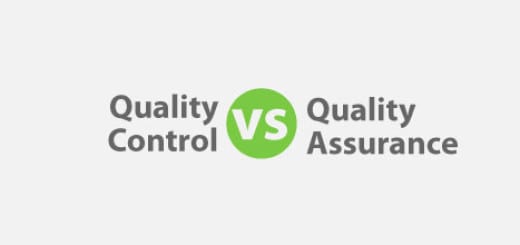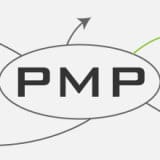Major Changes to New PMP Exam in Jul 2020 Explained

PMI has published a new PMP Exam Content Outline in June 2019 outlining the new PMP Exam and the PMP Exam will be changed from July 2020 onwards. According to PMI, owing to the ever evolution of the project management profession, PMI needs to update the content of the PMP Exam in order to stay abreast with the changes and this has resulted in the new version of the exam content outline as well as the new PMP Exam from Jul 2020.
Article Highlights
What Actually are the Changes?
The new PMP Exam 2020 will be categorized according to 3 major domains of content:
- People (interpersonal) – 42% of all PMP exam questions
- Process (technical) – 50% of all PMP exam questions
- Business Environment (interacting with the organization) – 8% of all PMP exam questions
The new PMP Exam attempts to organize project management knowledge into much simpler and easy-to-understand skillsets categorized by People, Process and Business Environment. And these skillsets are universal and well-established best practices in the profession. As you will see in the details of the outline about each domain below, these are more towards the “SOFT” skillsets of project management which are useful when you are dealing with “What to do next?” type of questions. But for the “CORE” preparation for your PMP Exam, the PMBOK® Guide 6th edition will still be the one.
Another change is Agile Project Management will gain much weight:
- predictive project management (traditional, waterfall) – 50% of all PMP exam questions
- agile or hybrid approaches – 50% of all PMP exam questions
So, studying the Agile Practice Guide will be a must for the new PMP Exam!
Below we will take a look at the details of each domain. Just an overview only. You will not be required to remember word by word of each task.
Domain I – People
(dealing with people)
- Manage conflict
- Lead a team
- Support team performance
- Empower team members and stakeholders
- Ensure team members/stakeholders are adequately trained
- Build a team
- Address and remove impediments, obstacles, and blockers for the team
- Negotiate project agreements
- Collaborate with stakeholders
- Build shared understanding
- Engage and support virtual teams
- Define team ground rules
- Mentor relevant stakeholders
- Promote team performance through the application of emotional intelligence
Domain II – Process
(much identical to the descriptions in the PMBOK® Guide)
- Execute project with the urgency required to deliver business value
- Manage communications
- Assess and manage risks
- Engage stakeholders
- Plan and manage budget and resources
- Plan and manage schedule
- Plan and manage quality of products/deliverables
- Plan and manage scope
- Integrate project planning activities
- Manage project changes
- Plan and manage procurement
- Manage project artifacts
- Determine appropriate project methodology/methods and practices
- Establish project governance structure
- Manage project issues
- Ensure knowledge transfer for project continuity
- Plan and manage project/phase closure or transitions
Domain III – Business Environment
(about the performing organization)
- Plan and manage project compliance
- Evaluate and deliver project benefits and value
- Evaluate and address external business environment changes for impact on scope
- Support organizational change
The Good News?
After reviewing the PMP Exam Content Outline, we can say that the changes are NOT dramatic. And since the new PMP Exam 2019 is still based on the PMBOK® Guide 6th edition, it is expected that the changes to the PMP Exam will be relatively minor. If you have already begun your PMP journey, just go ahead and get certified as planned. Better to schedule the exam before the exam change.
But even if you cannot make it before the change, you can be assured that your current preparation will pose you well to take and pass the new PMP Exam from that day.
Another good news: PM PrepCast™ has announced that if you purchase the online PMP course now, you will receive the update based on the new PMP Exam after July 2020!
Every changes to the PMBOK® Guide is a major change to the PMP Exam (i.e. from PMBOK® Guide 4th to 5th and from 5th to 6th edition). I have to rewritten almost every single post of my website to update the contents to fit for the latest version. And in the actually PMP Exam, almost every exam questions were updated to reflect the changes. As for that changes to the PMP Exam Content Outline, the changes to the PMP Exam is usually a minor one. Last time when the new PMP Exam Content Outline was published in 2015, we published only a post or two to cover the latest changes (mostly about the responsibilities and skillsets of project managers only, no changes to the PMBOK® Guide knowledge). Last time PMI made an update to the PMP Exam Content Outline in 2015, PMI estimated that 25% of the exam questions were updated (mostly on the use of words).
The seasoned PMP Exam trainer, Cornelius Fichtner, has responded to this PMP Exam change as below:
As a PMP trainer, I have always focused not only on teaching my students how to pass their exam but also on how to become better project managers. That is why I think the change in the new PMP Exam Content Outline (from December 2019) is a step in the right direction.
With this change, PMI is moving away from the five current and somewhat ‘technical’ domains and shifts the focus of the exam to test a candidate’s knowledge of, and experience, in the skills necessary to actually lead and manage a project.
This is not to say that the knowledge of project management methods, concepts, and techniques, is any less important, but a candidate will now also need to show that they truly know how to lead a project and how to bring it to successful completion.
So, overall, the exam change to PMP Certification is beneficial to Aspirants, though changes always bring about uncertainties and stresses.
Wish you PMP success!
Most Popular PMP Certification Exam Articles
- My Exam Prep Tips and Free Resources (I got 4P and 1 MP)
- How to Get 35 Contact Hours Fast and Easy?
- Detailed Comparision of online PMP Courses
- Over 1000+ FREE Quality Mock Exam / Practice Questions
- A FREE Guide to Formulas and Calculation (with explanation and sample questions)
- 47 Commonly Confused Terms with detailed explanation




 Hi, my name is Edward Chung, PMP, PMI-ACP®, ITIL® Foundation. Like most of us, I am a working professional pursuing career advancements through Certifications. As I am having a full-time job and a family with 3 kids, I need to pursue professional certifications in the most effective way (i.e. with the least amount of time). I share my exam tips here in the hope of helping fellow Certification aspirants!
Hi, my name is Edward Chung, PMP, PMI-ACP®, ITIL® Foundation. Like most of us, I am a working professional pursuing career advancements through Certifications. As I am having a full-time job and a family with 3 kids, I need to pursue professional certifications in the most effective way (i.e. with the least amount of time). I share my exam tips here in the hope of helping fellow Certification aspirants!






Hi Edward.
Do you know whith the already PMP certified PM’s? Do they have to re-certify by showing experinece (also on Agile projects) and take the exam?
For current PMPs, there is no need to retake the exam. You just need to collect enough PDUs in order to renew your PMP status. Thanks!